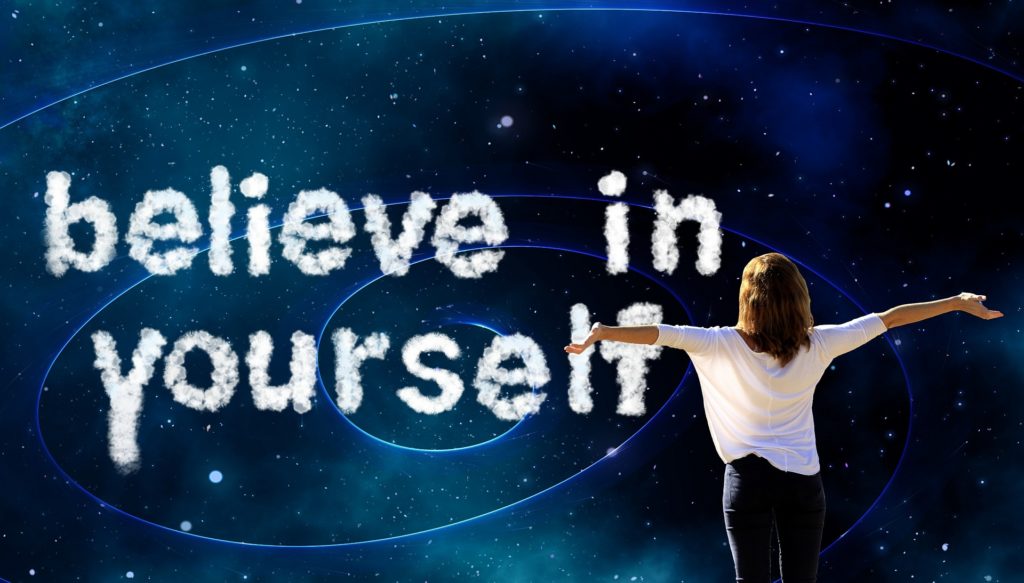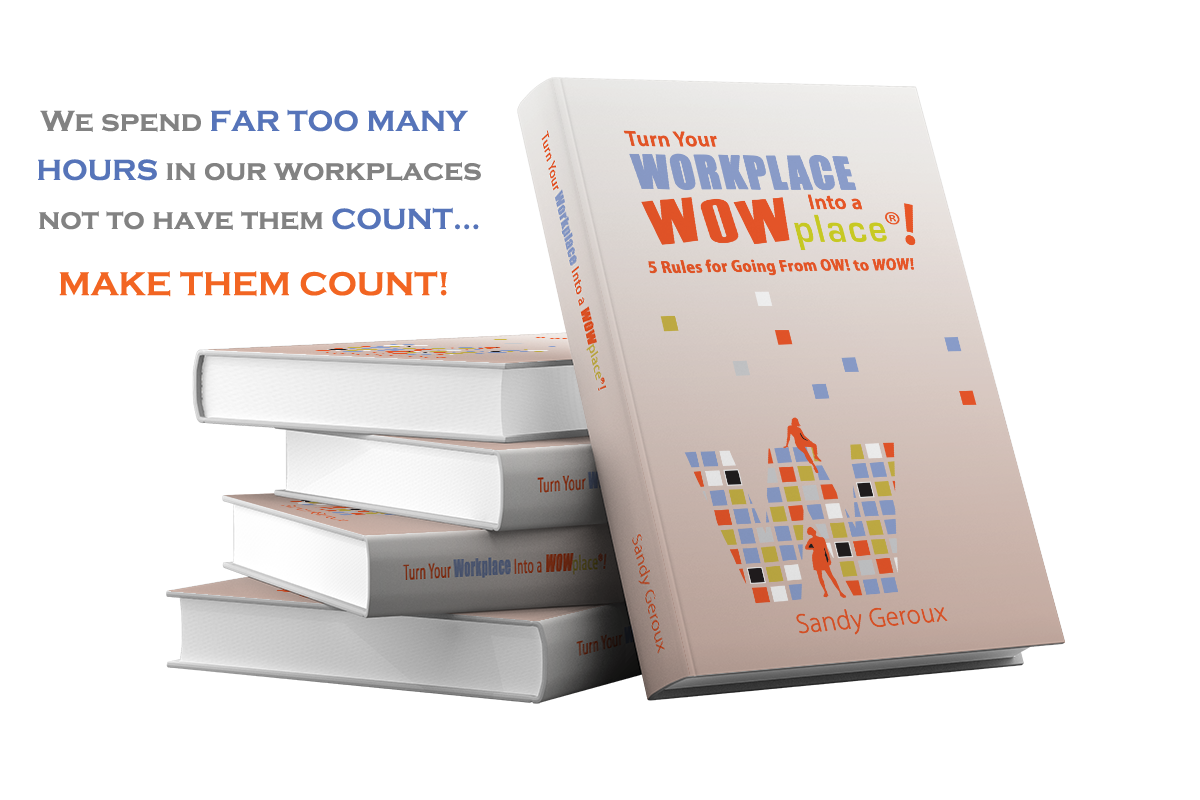
The more people I speak to lately, the more it becomes obvious that self-confidence is taking a hit. A lack of self-confidence affects every part of our lives – from work to dating to pursuing our passions to getting the nerve to speak up about anything.
In the workplace, this challenge can have big consequences for your satisfaction, fulfillment and advancement in your career, as well as your financial status.
So, I’d like to offer a few tips to help you think of your worth and self-worth in a new way.
First, remember that there are two sides to the Worth “coin.”
Worth: the value that someone puts on something external to them (a product, a job/position – even a person). In the business world, leaders put a value on the salary they believe a position is worth. If a candidate has the skills, experience, traits and attitudes that will enable them to succeed, they are paid what the leader believes they are worth, within the guidelines set for that position.
Self-Worth: what an individual believes they themselves are worth. It does not come from any external source or judge of what someone is worth. It comes from within; from a belief in what they can do and who they are.


We are the judges of our own self-worth. Furthermore, we don’t have to buy into someone else’s (sometimes incorrect) assessment of our worth!
We may have to live within the confines of external judgments at times, as we prove ourselves in a new position or work our way up the career ladder. But that doesn’t change what we’re REALLY worth inside… it only affects how quickly we get recognized, compensated and rewarded for our worth. The more self-confident and convinced of our own worth we remain, the more quickly that will happen, as we confidently demonstrate our worth and our belief in ourselves.
Which brings me to my second point:
Just because someone else doesn’t seem to appreciate you and your worth, that doesn’t mean it isn’t there.
In the latest version of the movie, A Star Is Born, Lady Gaga plays the character of an incredible singer named Ally who hasn’t yet been discovered by those who could launch her to stardom. When Jackson Maine (played by Bradley Cooper) arrives at the cabaret where she is singing, he recognizes her talent and asks her why she hasn’t been discovered yet. Ally replies that when she goes to auditions, there are all these men who tell her that she sounds really great but she doesn’t look so good. Her nose is too big, she’s not pretty enough.
Did you know that this portion of the film mimics Lady Gaga’s real-life story? She was told that she would never make it big as a pop singer because she wasn’t glamorous enough! In fact, a profile in New York magazine stated that, “She was young, skinny, and blonde, but she had a prominent Italian nose, the kind of nose that rarely survives on a starlet.”
The article went on to show how Lady Gaga broke that stereotype and proved that just because that kind of feature rarely survives on a starlet doesn’t mean it never can. Thankfully for Gaga, she believed in herself enough to persist – and we know her today as the infamous singer who wears meat costumes, bubble dresses, hair bows and more!
Third, get rid of any expectations of perfection – of yourself or anyone else – and any guilt over not being perfect.
This applies to our looks, our experience, our education – everything!
One gentleman with whom I worked years ago had serious doubts regarding how far he would ever go because he didn’t have a college education. But he pursued his dream of career advancement, worked hard and ended up rising through the ranks of a large corporation to become the President and CEO of one of its subsidiaries.
This was an important lesson in not only refusing to doubt himself just because of one factor that he thought was lacking, but also in not comparing himself to others. He thought that because many other people in the company had college degrees, he would be automatically passed over in favor of them. Fortunately for him, another executive mentored him and helped him understand that the degree wasn’t everything. His skills, attitude, personality and experience far outweighed his lack of a formal college degree.
The bigger lesson for all of us? When we compare ourselves to others, we will always come up short. Remember, no one is perfect! And no one factor alone determines how far we can go… except our lack of self-confidence, which can single-handedly destroy our chances of accomplishing any goal we set out to do.
This unrealistic expectation of perfection also applies to mistakes that we make. I don’t care who we are, we all make mistakes. No one is exempt.
In our personal lives, this strive for perfection can ruin our chances of finding and keeping love and of having great relationships with our parents, siblings, children and friends. If we can’t forgive our family members and friends for not being perfect, we’ll never be able to see them as the loving (but flawed) human beings we all are. Most humans are really nice people… but they’re not perfect.

How many times do we hear of people who haven’t spoken to a family member or friend for years because of one thing they did wrong?
(Sometimes it’s one thing that one party thinks the other did wrong… which is often not true but they don’t talk to discover that it’s not true.)
But, this situation aside, in both our personal and professional lives one of the biggest factors in overcoming our mistakes and continuing our forward and upward progress is our inability to admit and/or forgive ourselves for them.
Some people are so embarrassed by making a mistake that they have difficulty admitting it. If they don’t admit it, it’s often discovered later, causing even more embarrassment than if they had admitted it from the beginning and taken steps to correct it.
Even if they do admit it, the fact that they have to admit it to someone is accompanied by so much embarrassment, and often guilt, at having made it in the first place that they make the other person believe it is worse than it really is. Or they force the other person to focus so much on making them feel better that no one can quickly move on to addressing and resolving any issues that the mistake caused.
Not only does this ding your self-confidence, but it also hurts your credibility as others begin to wonder if you can handle the strain of new responsibilities and challenges. This will hold you back from receiving important opportunities, such as project work, leadership duties, training opportunities (and more!) that could facilitate quicker advancement.
So, give yourself a fighting chance to achieve your personal and professional goals and feel great about what you have accomplished by using the following method to keep your guilt and mistakes at ARM‘s length (where they belong once they’re resolved):
Admit your mistakes – quickly, matter-of-factly and without guilt; don’t be embarrassed by them… they’re a common human trait!
Resolve them as quickly as possible – help everyone focus on the resolution, rather than the mistake.
Move on by learning from them, forgiving yourself and refusing to dwell on them!
Finally, rather than focusing on where you can be better, focus on what you do well.
We can all be better at whatever we do – why? Yes, because no one is perfect… yet! But whenever I am preparing for a speaking engagement, rather than focusing on the fact that I can always be a better speaker, I focus on what I do well. I connect well with my audiences; they love my sense of humor; I can really engage them, both in person and virtually; and most important, I know I’m helping them build a better life or career – or even just view something in a different light.
If I compared myself to other speakers every time I got up to speak, and focused on the things they do that I don’t, I’d never set foot on a stage or a Zoom call again!
So, whenever you’re trying to achieve your goals – and you’re preparing for an important meeting, or trying to get the courage to have a conversation with someone new… or whatever you’re trying to do – focus on all the wonderful things you do well! Think about your accomplishments, focus on your positive impact on others, reflect on the benefits you’ve brought to any situation. Stop focusing on what you lack – and focus on what you do well.
If you do practice this every day in your life, not only will you feel better about yourself, but you will be amazed at how far you can go!
I look forward to your comments below.

